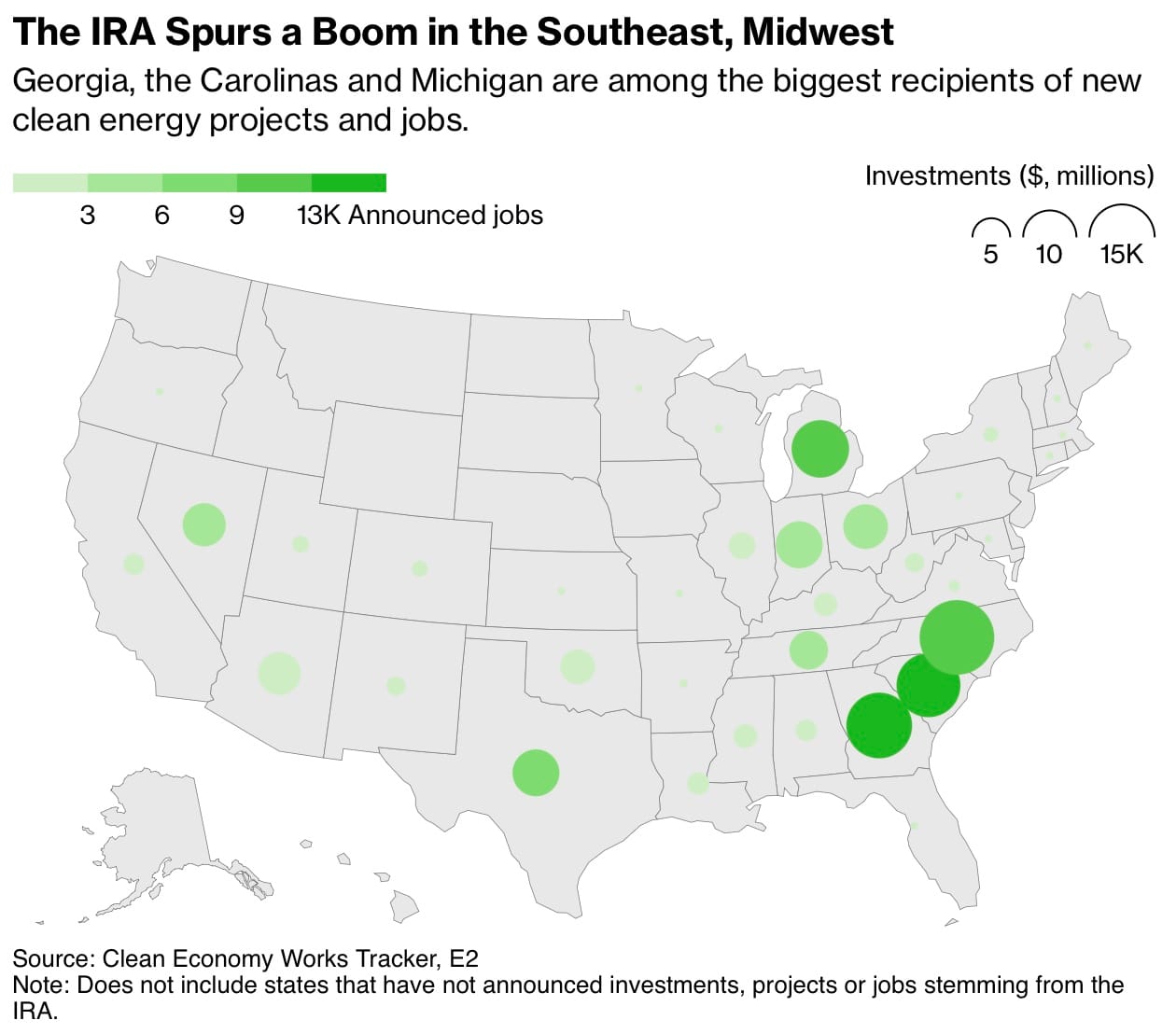In what feels like arguably one of the most divided political landscapes, we're seeing… unity?
Recently, a group of House Republicans have been urging House Speaker Mike Johnson not to repeal the clean-energy tax credits from President Biden’s Inflation Reduction Act (IRA). These 18 lawmakers have warned that scrapping these credits could derail private investments and ongoing renewable energy projects, which have already broken ground across the country—most of which are actually in red states.
Unexpected Benefit
Since the IRA passed in August 2022, the clean energy boom has been nothing short of transformative. Across more than 41 states, over 325 new clean energy projects have been announced, according to the nonpartisan environmental research group E2. Michigan is leading the charge with 30 projects that are set to create more than 12,000 jobs. Down in Georgia, 28 projects are poised to bring in $15 billion in investments and nearly 16,000 new jobs. And in North Carolina, a staggering $19 billion has already been funneled into 22 projects, signaling just how powerful these incentives have been for the local economy.

This pushback actually reflects a much broader shift, where climate policies are increasingly becoming a bipartisan issue. The economic and environmental stakes are too high to ignore, and even traditionally conservative districts are seeing the benefits of clean energy investments in their communities. Take this in—while no Republicans voted for the IRA initially, a staggering $105 billion out of $123 billion in clean tech spending since its passage has flowed to GOP districts. Now representatives whose districts have received billions in clean energy funding, such as those from Nevada and Georgia, are actually advocating to preserve these credits.
Tell Your Friends
The clean energy tax credits have not only spurred economic growth, job creation, and innovation but have also helped bridge the partisan divide on climate action. If it isn't already clear, safeguarding these investments is not just about political victory; it’s about ensuring a sustainable and prosperous future for all Americans.
Climate change doesn’t adhere to party lines, and neither should our response to it.








